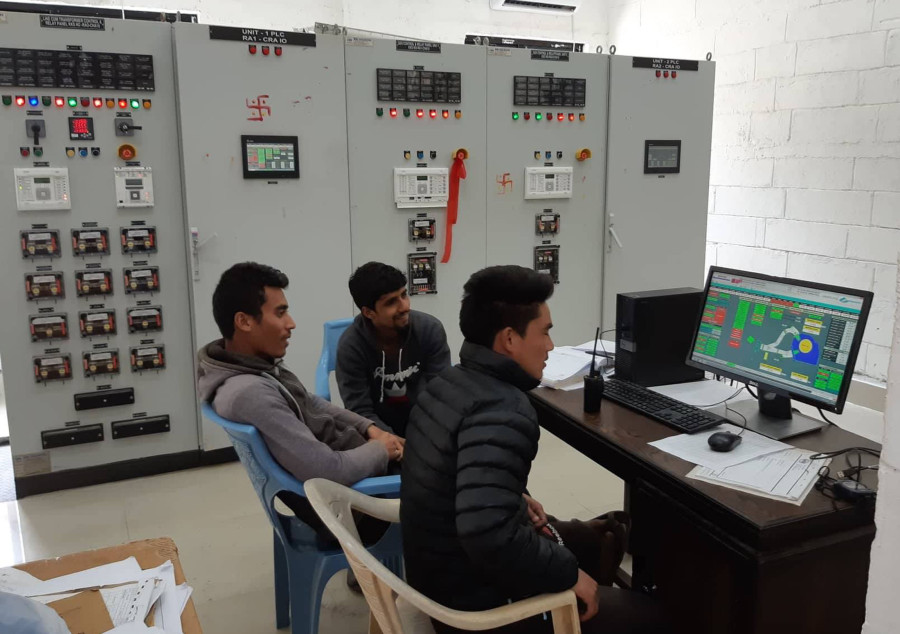Money
Industrialists accuse Nepal Electricity Authority of charging them illegally
Industrialists on Tuesday accused the Nepal Electricity Authority of having billed them ‘illegally’ for the past three years for using regular electricity supply through dedicated feeders and trunk lines.
Prahlad Rijal
Industrialists on Tuesday accused the Nepal Electricity Authority of having billed them ‘illegally’ for the past three years for using regular electricity supply through dedicated feeders and trunk lines.
The state-owned power utility said that certain factories received electricity through dedicated feeders worth billions of rupees when the rest of the country suffered load-shedding. It said it was calculating the actual amount of the outstanding electricity bills. On Tuesday, three trade associations came to the defence of the industrialists and countered the utility’s charges, questioning the motive for billing them for such huge amounts. They claimed that the utility had even billed those factories that had not signed any agreements for regular electricity supply. The private sector representatives said that the claim made by the authority was ‘unacceptable’.
Satish Kumar More, president of the Confederation of Nepalese Industries, said that at a time when Nepal’s trade deficit was ballooning and industries were struggling to produce goods, the electricity authority was threatening to cut off power with false charges. “What kind of message will it give to potential foreign investors about Nepal’s investment climate?”
According to the confederation, the factories using dedicated feeder lines don’t have any unpaid bills, and the claim of the electricity authority is illegal and baseless.
In June 2015, a board meeting of the electricity authority had set premium charges for factories using electricity through dedicated feeders from August that year. A separate meeting of the now-dissolved electricity tariff fixation commission in January 2016 had decided to set premium charges for factories using direct electricity from dedicated feeders and trunk lines that connect two substations.
As per the regulations issued by the commission, factories getting electricity through dedicated feeders and for more than 20 hours through trunk lines are required to pay a monthly service charge, and demand and energy charges. Accordingly, the power utility emailed the factories asking them to clear their dues since the date the regulation was implemented.
The electricity authority said the two decisions and provision of premium charges conflicted, and a committee had been formed to look into the matter.
“The rules on usage of trunk lines and associated charges are conflicting, but the industries have taken electricity through dedicated and trunk lines,” said Kulman Ghising, managing director of the Nepal Electricity Authority. “We have formed a committee that is reviewing the energy consumption of individual factories from the date of implementation, and they will be billed as per their consumption.”
When asked about the bill amount due, both the factory owners and utility officials were unwilling to speak. According to Pashupati Murarka, former president of the Federation of Nepalese Chambers of Commerce and Industry, the utility has charged the 240 factories 70 percent higher than the usual rate. The authority itself is confused about the amount, he said, adding that the utility should not charge rates that go against the provisions. “It is not feasible for us to pay the amounts stated on the bills,” said Murarka. According to the electricity authority, 298 consumers are being supplied electricity through dedicated feeders and trunk lines. Among them, 184 have been charged premium rates.




 9.83°C Kathmandu
9.83°C Kathmandu















